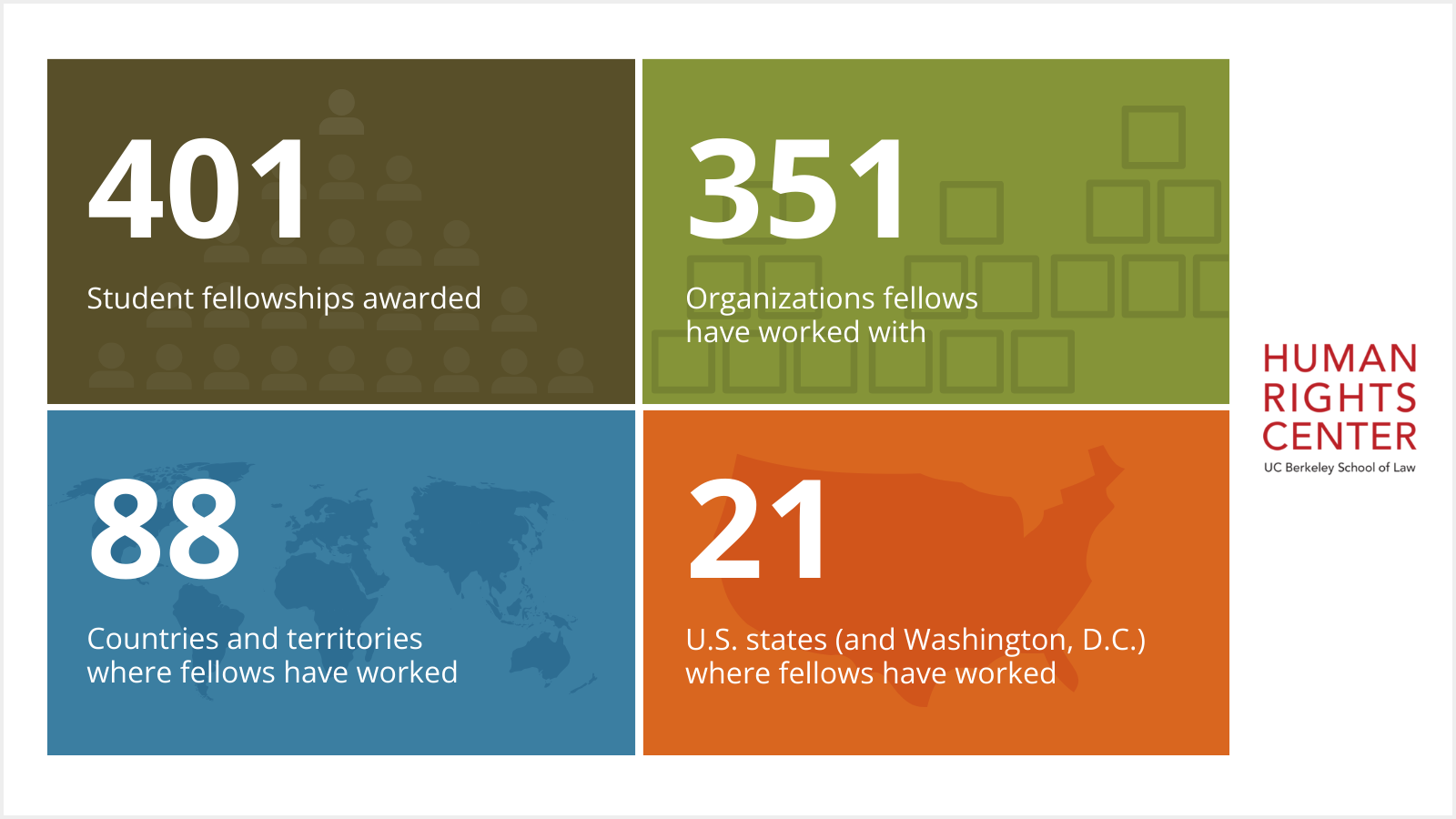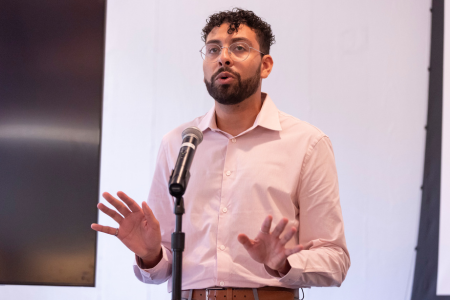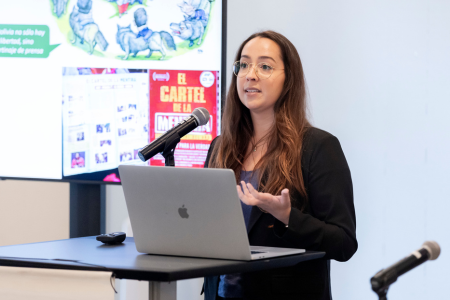
By Andrew Cohen
As a Berkeley Law student, Anthony Ghaly ’23 fully understood why some of his social justice-driven peers peeled away from human rights work. For many, its arc is simply too long.
“They were committed to public service,” he said. “But what I heard them say was that human rights practice demanded something from them that other areas of practice didn’t seem to require. Seeing justice for a community you’re researching or serving often takes years if not decades, and immediate gratification is almost never available. Your work product may not be relevant or helpful for years to come.”
A winner of the Berkeley Law Clinical Legal Education Association’s annual Outstanding Clinical Student Award, Ghaly recently introduced the latest cohort of Human Rights Center student fellows to give presentations about their work at the annual fellowship conference. More information about the center’s oldest program, which has sent students around the world to work with human rights organizations since 1994, is available in this video.

Now a researcher at the center and a Ph.D. student in Berkeley Law’s Jurisprudence and Social Policy Program, Ghaly hailed their commitment and said the issues they worked on are often widespread and pervasive.
Noting the rise of authoritarian regimes, nations routinely committing atrocities without repercussions, a jarring climate crisis, and growing risks for human rights defenders, Ghaly cited a study showing that global freedom has declined for 17 consecutive years.
During their presentations, fellows described their wide-ranging efforts to make a difference — from addressing reproductive health care for Rohingya refugee women in Bangladesh and the shortage of drinking water in rural California to the trafficking of refugees in the Mediterranean and the surveillance of journalists worldwide.
“To do human rights work and to do it well, the practitioner must be ready and willing to be a small part of a longer larger story, perhaps a never-ending one,” Ghaly said. “These fellows through their work have decided to be part of that story through their time, expertise, and effort.”
Defending rights amid development
Berkeley Law’s Maria Fernanda Quintero Sirtori LL.M. ’23 was one of this year’s 13 fellows. Partnering with Accountability Counsel in San Francisco, she worked to protect the human rights of communities and environments negatively impacted by internationally financed development projects.
Addressing such projects in Latin America, Eastern Europe, and Asia, Sirtori worked at the intersection of environmental rights, human rights, and the responsibility of international institutions and corporations. She aimed to empower communities to be better informed and better able to receive justice and access remedies for harm they sustained through non-judicial grievance forums known as Independent Accountability Mechanisms of developed financed institutions. These include the International Finance Corporation’s Independent Accountability Mechanism, the World Bank Group’s Multilateral Investment Guarantee Agency, the U.S. International Development Finance Corporation’s Office of Transparency and Accountability, and the Inter-American Development Group’s independent accountability office.
“We’ve seen how communities affected by these projects usually don’t participate in the decision-making processes that affect them,” Sirtori said. “Ensuring consultation and participation of communities are basic requirements of a human rights due diligence process that corporations are responsible for according to international guidelines.
“Development projects can cause human rights and environmental negative impacts on a large scale. Communities, especially the most vulnerable, often pay the highest price. Abuse impacts communities in many ways: forced displacement, contamination of drinking water, loss of culture and livelihoods.”
International development banks and international finance institutions have a key responsibility to cooperate and meaningfully engage with communities, she added, to ensure the projects they are financing factor in local knowledge that’s relevant to addressing human rights and development needs.

In one project Sirtori worked on, residents — mainly refugees displaced due to conflict — lived within 40 meters of a port expansion and were affected by air pollution, noise, and waste management. Children from roughly 100 families were tested and shown to have two to six times higher than average levels of lead, mercury, and other toxins in their blood.
Her research provided legal analysis on how harms reported by the community, in violation of their human rights according to international guidelines for companies and investors, were directly or indirectly caused by corporate behavior.
“It’s important to listen to the voices of the community, and then weave that information into policy or programs from international organizations — not the other way around,” Sirtori said.